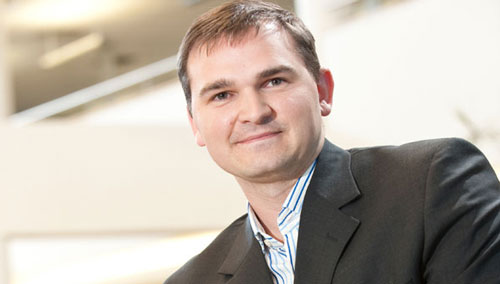
Telkom’s mobile operator 8ta is looking at next-generation long-term evolution (LTE) mobile technology as a possible replacement for copper in selected areas and as a way of meeting expected growth in demand for data.
Zoltan Miklos, executive for converged data networks at 8ta, says the operator is already trialling LTE, which is often — and sometimes controversially — referred to as a fourth-generation, or 4G, mobile technology.
8ta is ensuring its cabinets and hardware on all base stations — about 1 500 have been built so far — are LTE-ready, but Miklos says antennae and masts must still be upgraded. He won’t speculate on when 8ta will switch on its LTE network. The only large mobile operator that is actively deploying LTE is MTN, which is running a pilot network in Gauteng.
Miklos says that because copper is expensive to maintain and susceptible to theft, 8ta considers systems like LTE as a potential replacement to copper.
The operator is already offering a fixed-line “lookalike service” in conjunction with Telkom in areas where copper is either excessively degraded or rolling it out is impractical. “It’s basically a fixed-line number via a mobile network.”
For now, that service is limited to 8ta’s own infrastructure and excludes areas outside the cities where it’s reliant on a roaming agreement with MTN.
Milkos says the commercial roadmap for LTE is “still very much a grey area” and, because the technology is “bleeding edge”, the ecosystem around it is still developing.
“We’re still not sure what model the commercial offerings will take,” he says. The model will also be dependent on demand, and for that 8ta will need a far busier network. 8ta’s recent 10GB “Go Big” promotion was about fulfilling that need and “stimulating usage, building a customer base and testing the network”.
Miklos says that even in the US many customers have proved reluctant to pay for additional speed alone and so 8ta and its competitors need to “look at what models are going to make it viable here”.
8ta doesn’t intend to roll out LTE using a “widespread model”, but rather “we’ll start with selected hotspots and grow the network from there, similar to 3G in the early days”.
In its recent half-year results presentation Telkom said 8ta hadn’t grown its subscriber base as quickly as it had hoped and that average revenue per user, particularly on the prepaid side of the business, was poor.
Miklos says 8ta is aware that it needs to increase revenues and the “prepaid part of the business is getting lots of attention”. He says the low prepaid revenue can be partially attributed to “secondary Sim activity” where customers have an 8ta Sim to take advantage of its benefits but use another Sim as their primary one.
“We need to make sure ours is a compelling enough proposition to be a customer’s primary Sim,” Miklos says. “We need to make people more aware of the value propositions we can offer, like airtime for incoming calls and preferential rates to fixed lines.” — Craig Wilson, TechCentral
- Subscribe to our free daily newsletter
- Follow us on Twitter or on Google+ or on Facebook
- Visit our sister website, SportsCentral (still in beta)




